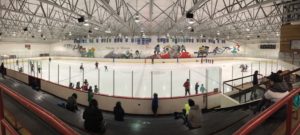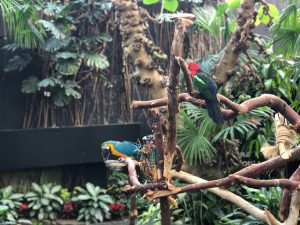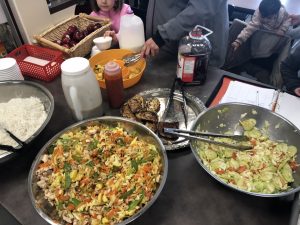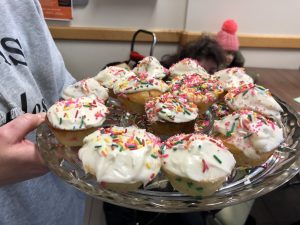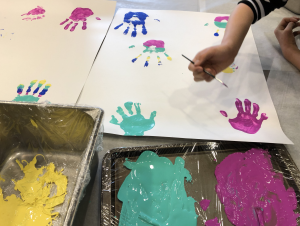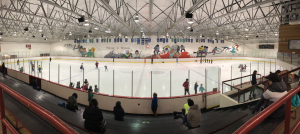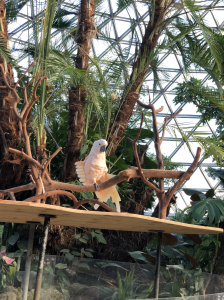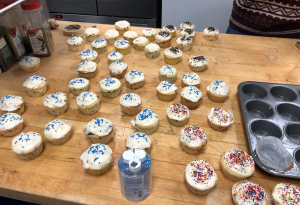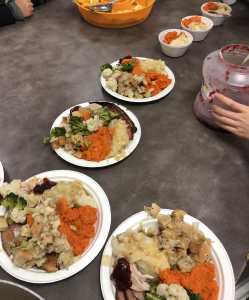Hello friends! I am Nathan, a first-year student in the faculty of arts. Though my first year at UBC was overwhelming as I adjust to my new life in Canada as an overseas student, participating in UBC’s community outreach program TREK was one of my most fulfilling experience in my first year of university.
Volunteering as a tutor at an organization in Kunming that works with youth from migrant working families in China has given me a heart for the youths living in the inner-cities in Canada. Though the two countries are culturally different, volunteering as a tutor at the Britannia Homework Club (BHC) made me realize that youths from Canada and China experience the same kind of challenges and difficulties: there exists a lack of resources to support their emotional, physical, and academic wellbeing between the inner cities of Kunming (where I grew up) and Vancouver’s Downtown Eastside (DTES). When offered the opportunity to participate in TREK, I was very hesitant since I had a shift scheduled on that day as restaurant server but I at the same time, my heart wanted to learn and care about the youth living DTES. That decision made a difference that deeply impacted my future direction.
Every Tuesday, I would commute to BHW for 2 hours and tutor math, socials, and English with the secondary students who come for help. Setting up the homework club space, sitting down and going over physics problems, suggesting outlines for essays for reports on football players, and most importantly socializing with the students that I helped was one of the most rewarding time I spent compared to studying at UBC. Helping out these students’ secondary journey helped my journey of post-secondary school than more I ever anticipated! While I was struggling with more course load, drowning in the stress of my part-time work, and burning myself out with social activities with my friends, I was helping these students and telling them exactly the same advice I needed to apply for myself: “Here’s how to write an outline for your essay. You should plan out how much to write each day, so you don’t have to cram it last minute.” “All the answers are in your readings. You just have to highlight the important concepts.” “Writing down the deadlines for all your assignments is a great way to keep track of your work”. I was such a hypocrite. Yet, at the end of the day, as I commuted back to campus, I was so encouraged by the youth’s aspiration and hard work to succeed that it impacted me to seek to do more for their wellbeing and their community.
Participating in Map the Systems (a competition) gave me the opportunity to research the poverty and challenges youths in the DTES faced, giving me a broader perspective of the youth’s background and a deeper personal connection with the students that I tutored. Hearing their stories about growing up with many kids in their family, talking with my supervisor to learn about the problems the youths face from the DTES, and building relationships with these students have impacted me my life trajectory to seek work in the education sector with nonprofits or as a secondary teacher. My life passion is to help improve the well-being of the students that I worked with at BHW and to do more for youths in the DTES. With much appreciation to TREK, I want to fully utilize my time at UBC to gain skills to expand my impact in the lives of these youths.
- Which requires more work, discussion or trek?
I would argue that the two options depend on who you are and what sparks your passion. If writing a long paper is your forte, go for it! But if you’re interested in getting involved first hand in understanding real social issues in Vancouver, engaging in the solution process, and building future career and social networks for you future in Vancouver, I believe that Trek will prepare you for the world beyond university.
- Is volunteering in the Downtown Eastside safe?
I believe from a sociological standpoint that safety is a social construct derived from our cultures, values, and beliefs. There is no such concept as a place being “safe” as long as human nature remain unpredictable and obscure. I can walk in the downtown of any major city in China such as Beijing at 3 am in the morning and feel absolutely safe, while fearing for my safety in the US due to crime and gang activities in Chicago and Los Angeles. I believe that as you get to know the communities we are surrounded by, we will be able to assess the risks and safety of our surrounding communities. As a word traveler of 65 countries, I believe that as long you travel with a group of friends, anywhere is “safe”.
- Will I miss out on anything in discussion?
You will miss out all the fun stress the discussion students have to go through piecing their 2,500-word research paper together. Every course in CAP will require students to write research paper in their classes, and as long you remain in the faculty of Arts, you will be required to write papers for the next few years of academia.
- Is Trek rewarding?
Participating in Trek solidified my major, career, and life direction. There is nothing more rewarding then learning from life experience than books.
